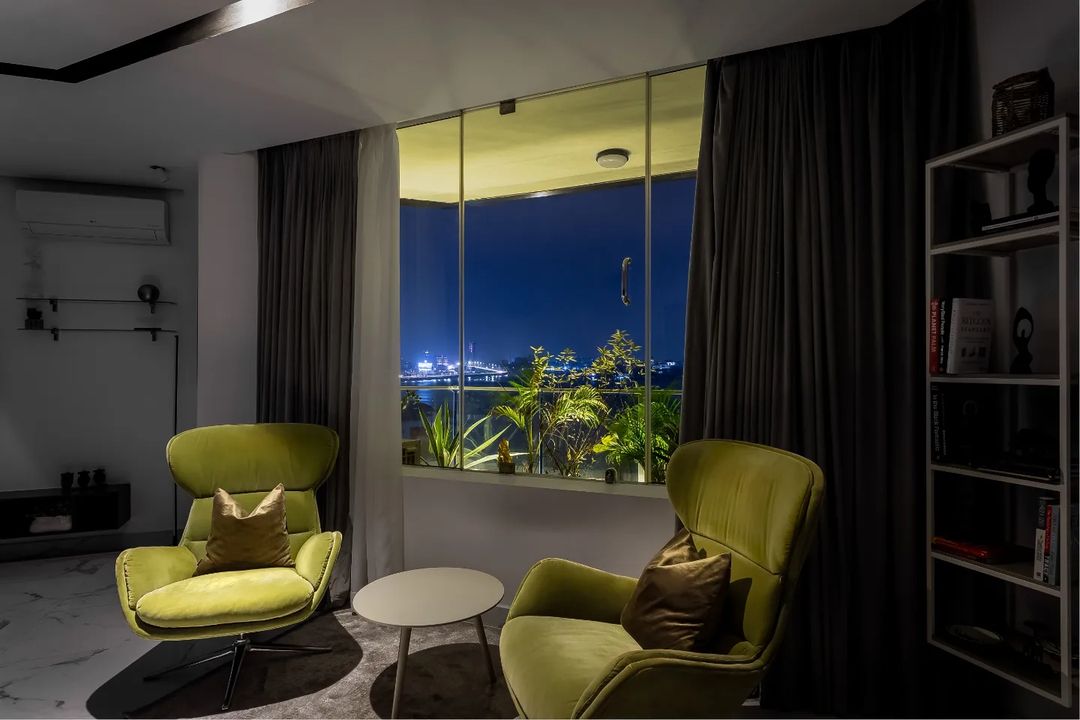How to Start a Short-Term Rental Business in Nigeria
The short-term rental business in Nigeria has seen significant growth in recent years, thanks to the increasing number of business travelers, tourists, and digital nomads looking for comfortable and affordable accommodation.
With platforms like Airbnb, Booking.com, and Jumia Travel making it easier to list properties, starting a short-term rental business can be a lucrative venture.
This guide will walk you through the essential steps to start, operate, and grow a successful short-term rental business in Nigeria.
Step 1: Conduct Market Research
Before jumping into the business, it is crucial to understand the market dynamics. Market research helps you determine demand, pricing strategies, and competition.
– Understand Demand in Different Cities
The demand for short-term rentals varies by location. Lagos, Abuja, and Port Harcourt are high-demand cities due to business and tourism activities. Secondary cities like Ibadan, Enugu, and Uyo also have growing markets.
– Identify Your Target Audience
Your ideal guests may include:
- Business travelers
- Tourists and expatriates
- Digital nomads
- Event attendees (weddings, conferences, festivals)
– Analyze the Competition
- Browse platforms like Airbnb and Booking.com to see how hosts present their listings.
- Note pricing structures and customer reviews to identify common complaints and areas for improvement.
Step 2: Choose the Right Location
Your property’s location plays a vital role in attracting guests. Consider:
– Proximity to Key Areas
- Business hubs (Victoria Island, Lekki, Ikeja GRA, Abuja Central Area)
- Tourist attractions (Olumo Rock, Obudu Mountain Resort, Nike Art Gallery)
- Event centres and airports
– Safety and Security
- Choose a neighbourhood with low crime rates.
- Consider properties in gated estates or serviced apartments.
– Accessibility
- Ensure easy access to transportation (major roads, airports, and public transit).
- Availability of restaurants, supermarkets, and hospitals nearby.
Step 3: Secure a Property
– Buying vs. Renting
- Buying: A long-term investment that provides full control over the property.
- Renting: A flexible and lower-cost option, but ensure your lease allows short-term subletting.
– Negotiating with Landlords
- Clearly communicate that the property will be used for short-term rental.
- Negotiate favourable lease terms, including maintenance responsibilities.
– Legal Considerations
- Some estates and residential areas have restrictions on short-term rentals. Ensure compliance with homeowners’ associations and local laws.
Read This: How Often Should You Deep Clean a Short-Term Rental?
Step 4: Furnish and Set Up Your Rental
A well-furnished rental increases bookings and attracts high-paying guests.
– Essential Furniture and Appliances
- Comfortable bed and quality bedding
- Smart TV with Netflix access
- High-speed Wi-Fi
- Air conditioning and reliable power supply (consider an inverter or generator)
- Well-equipped kitchen (microwave, gas cooker, refrigerator, utensils)
– Aesthetics and Decor
- Modern and stylish decor enhances the guest experience.
- Invest in good lighting and wall art to create an inviting space.
– Budgeting for Interior Setup
- Allocate funds for essential items first.
- Consider outsourcing interior design for a professional touch.
Step 5: Register Your Business and Handle Legal Requirements
To operate professionally, register your business and adhere to local regulations.
– Business Name Registration
- Register your business with the Corporate Affairs Commission (CAC) in Nigeria.
– Obtain Necessary Permits
- Some states require permits for short-term rentals. Check with local authorities.
– Tax Obligations
- Pay necessary taxes, including personal income tax and rental income tax.
Step 6: List Your Property on Booking Platforms
– Create an Attractive Listing
- High-quality images (consider hiring a professional photographer).
- A compelling title and detailed description.
- Highlight amenities such as Wi-Fi, Netflix, or free parking.
– Use Multiple Platforms
- List on Airbnb, Booking.com, and Jumia Travel.
- Consider direct bookings through social media and a personal website.
– Pricing Strategies
- Compare competitor prices and adjust based on demand.
- Use dynamic pricing tools to maximize earnings during peak seasons.
Step 7: Marketing Your Short-Term Rental
– Leverage Social Media
- Promote your rental on Instagram, Facebook, and TikTok.
- Use professional visuals and guest testimonials.
– Run Paid Ads
- Facebook and Instagram ads can target travellers looking for short-term rentals in your city.
- Google Ads can increase visibility for searches like “short-term rentals in Lagos.”
– Partner with Influencers and Travel Agencies
- Work with local influencers to promote your rental.
- Collaborate with travel agencies to secure bookings.
See This: How to Make a Small Short-Term Rental Look Spacious
Step 8: Provide an Excellent Guest Experience
– Streamline Check-in and Check-out
- Offer self-check-in options (smart locks, key safes).
- Provide clear instructions for a smooth arrival.
– Offer Extra Services
- Airport pickup and drop-off services.
- Local tour guides and car rental partnerships.
– Manage Reviews and Ratings
- Encourage guests to leave reviews.
- Quickly respond to complaints and improve based on feedback.
Step 9: Manage Operations Efficiently
– Hire a Property Manager or Self-Manage
- If you have multiple properties, hiring a property manager can ease operations.
– Use Automation Tools
- Tools like Guesty or Hostaway can help automate bookings and communication.
– Cleaning and Maintenance
- Hire professional cleaners to maintain hygiene standards.
- Schedule regular maintenance checks for electrical and plumbing issues.
Step 10: Scale and Grow Your Business
– Expand to Multiple Properties
- Reinvest profits into acquiring more properties.
– Create a Brand for Your Rental Business
- Develop a professional website.
- Use consistent branding on social media.
– Explore Corporate Partnerships
- Partner with businesses for long-term bookings.
- Offer company retreats and serviced apartments for expatriates.
Read This: A Step-by-Step Cleaning Checklist for Short-Term Rentals
Conclusion
Starting a short-term rental business in Nigeria is a rewarding venture if done correctly.
By choosing the right location, furnishing your rental attractively, leveraging online platforms, and providing top-notch service, you can build a profitable business.

